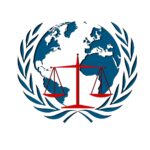The day of many names — World Day for International Justice, Day of International Criminal Justice, or International Justice Day — is held each year on July 17 as part of an effort to recognize the system of international justice. These celebrations highlight how international justice tribunals and courts have brought and continue to bring justice for the victims of war crimes and crimes against humanity. It also commemorates the day the Rome Statute was adopted globally and ensures member nations of the International Criminal Court live up to their expectations.
History of World Day for International Justice
Over the centuries, the world has seen new boundaries, new frontiers, and new challenges. Alliances were made and broken. Wars broke out. People committed unspeakable acts against fellow men, women, and children. The world felt the need for international justice.
Out of this need arose the Nuremberg trials, which many regard as a milestone in establishing a permanent international court. A series of 13 trials were carried out in Nuremberg, Germany, after the Second World War to bring Nazi war criminals to justice. The defendants — among them Nazi Party officials and high-ranking military officers, German industrialists, lawyers, and doctors — were indicted on charges of crimes against peace and crimes against humanity. One of the first times anyone had been prosecuted for crimes against humanity, the Nuremberg trials were controversial at the time. Another landmark trial around the same time — known as the Tokyo Trial or the Tokyo War Crimes Tribunal and, formally, as the International Military Tribunal for the Far East — tried and convicted leaders of the Empire of Japan for joint conspiracy to start and wage war, conventional war crimes, and crimes against humanity.
A treaty to prosecute those accused of serious crimes internationally was proposed before a diplomatic conference in Rome, Italy, on July 17, 1998, in front of the United Nations. Adopted as the Rome Statute by 120 states, this treaty led to the establishment of the International Criminal Court (ICC) in 2002. The ICC is a permanent court that that can investigate and prosecute people suspected of committing genocide, crimes against humanity, war crimes and (since 2018) the crime of aggression in situations where national authorities are unable or unwilling to act genuinely. The ICC cannot, however, replace national courts. At a review Conference of the Rome Statute held in Kampala (Uganda) in 2010, the Assembly of State Parties decided to celebrate the day they adopted the treaty — June 17 — as the World Day for International Justice.
World Day for International Justice timeline
The victorious Allied governments establish an International Military Tribunal in Nuremberg, Germany, to bring justice to perpetrators of World War II — major Nazi war criminals are indicted.
An International Military Tribunal for the Far East (IMTFE) is created in Tokyo, Japan, to punish major war criminals in the Far East.
120 states adopt the treaty known as the Rome Statute, thus informally establishing the International Criminal Court.
60 countries ratify the Rome Statute, making the International Criminal Court official.
The Assembly of State Parties decide to celebrate the day the Rome Statute was adopted as the World Day for International Justice.
Congolese criminal warlord, Thomas Lubanga Dyilo, is the first person to be convicted and sentenced by the ICC — he is sentenced to 14 years in prison.
World Day for International Justice FAQs
What are the 11 crimes against humanity?
Some of the crimes against humanity entail extermination; murder; enslavement; torture; unfair imprisonment; rape; forced abortions and other sexual violence; persecution on political, religious, racial, and gender grounds; the forcible transfer of populations; the enforced disappearance of persons; and the inhumane act of knowingly causing prolonged starvation.
What is the international justice system?
International justice means ensuring accountability for some of the most serious crimes: genocide, crimes against humanity, war crimes, torture, and enforced disappearances.
Is the ICC part of the UN?
No, the ICC is not part of the UN. The Court was established by the Rome Statute. This treaty was negotiated within the UN; however, it created an independent judicial body distinct from the UN. The Rome Statute was the outcome of a long process of consideration of the question of international criminal law within the UN.
How to Observe World Day for International Justice
Remember the victims
Lives everywhere have been touched by the wars in history, and some face injustice even today. Learn whatever you can about the victims and those fighting for justice. Show your solidarity by acknowledging their fight and doing what you can to support them in their cause. You can even write an article or blog to highlight these people and their efforts.
Attend an event
Member countries organize events in support of World Day for International Justice and also to support the International Criminal Court. Some of these are also broadcast online, on television, or even on the radio. You can visit various websites to find out how to attend.
Support the cause
One of the goals of this day is to bring together all those who fight against injustice and those who promote victim's rights. Research non-governmental organizations working for justice-related causes like preventing violence against women, protecting human rights, etc., and consider donating or volunteering your talents.
5 Facts About The International Criminal Court
Multilingual
The ICC acknowledges six languages as its official languages: English, French, Arabic, Chinese, Russian and Spanish.
Global headquarters
The ICC’s headquarters is situated in the Netherlands, at The Hague.
Many countries support the ICC
Since its establishment, 139 countries have signed the Court's treaty, and nearly 80 states have ratified it.
200 successful trials
Since its inception, the ICC has completed 200 trials for unspeakable crimes.
Punishment meets the crime
The ICC website states that 35 arrest warrants have been issued so far, and 17 people have been detained by the Court for their crimes.
Why World Day for International Justice is Important
This day promotes justice
How can we have anything but a wholehearted love for a day that supports justice? Multiple communities, countries, and organizations come together to provide redressal for grievous crimes and, in the process, provide some measure of closure for the victims of those crimes.
It pays homage to the justice system
The International Criminal Court has done much for preserving international justice, and we are all for doing anything we can to support this system. This day gives us a chance to acknowledge the crimes and do our bit to pay our respect to the court system that addresses — and thus helps to deter — humanity's worst crimes.
It acknowledges the worth of every human
People should never have to fear for their safety or have their lives or their dignity be threatened. If such unfortunate instances do occur, it is heartening to know that an international court can advocate for fair litigation. This day reminds us that there are more and more people fighting for justice and safety each day.
World Day for International Justice dates
| Year | Date | Day |
|---|---|---|
| 2025 | July 17 | Thursday |
| 2026 | July 17 | Friday |
| 2027 | July 17 | Saturday |
| 2028 | July 17 | Monday |
| 2029 | July 17 | Tuesday |














